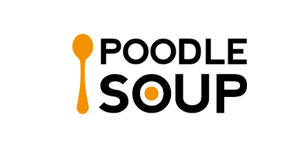Just as you think this debate will turn into the usual designer blah about sleepless nights, the 'downside of succes' and all that BS, Oliverio Toscani intervenes, totally steals the show and talks sense.
via iancul
Monday 19 July 2010
Privileged
Friday 16 July 2010
Yes, I have a problem with Ikea.
Not because of their products, mind you. Sure, some of them are just cheap imitations of design classics, but overall, their design policy is respectable, and their products offer quality that's acceptable for 20 dollar bookshelves and 200 dollar beds. Their flat-pack concept is smart, there's no question about that. And even with the mistake of ditching Ikea Sans (a customized Futura) for Verdana, their visual identity is nothing to be ashamed of.
It's not the shopping experience either. Like all sane people, I resent it, but I'm fast, focused and never find myself with anything I didn't really need afterwards. It's a matter of mindset, courageously withstanding a tsunami of clever attempts to get you to buy stuff.
It's not the fact that it's founder, Ingvar Kamprad joined and fundraised a fascist Nazi-sympathising group in Sweden during WWIII. When that well-kept secret came out, Kamprad immediately apologized for his involvement and claimed it was the biggest regret of his young life. He also wrote to every Jewish employee on his staff to issue a personal apology. That could all have been marketing, but hey, I'm willing to give him the benefit of the doubt and believe him when he says it was the biggest mistake of his life.
It's not even because of the 2007 scandal when Ikea admitted that some of its suppliers in the developing world used exploitative child labour and others were involved in illegal logging which destroys protected forests. Ikea never took full responsibility for those, but they did form Ikea's Social Initiative, working with Unicef and Save The Children to end child labour. They also work together with WWF to promote responsible forestry and to fight illegal logging. Moreover, Ikea came up with 'the Never-Ending Job', an in-house program that commits them 'to help create a world where we take better care of the environment, the earth’s resources, and each other'. This program includes e.g. the printing of their catalogue on Totally Chlorine Free paper and moving to renewable energy for electricity and heating of their stores.
So, all good then, right? I mean, what could you possible have against a company that makes more or less good products and commits themselves to make the world better? With all the programs they seem to be supporting, it makes them look like a freaking charity.
And that's exaclty what they are. Ikea is charital organisation. Now, it gets interesting.
In 1982, Kampvard's ownership stake in the company was given to Stichting Ingka Foundation, a Dutch charity. The charitable foundation was reported by The Economist to be technically the world's wealthiest charity – with an estimated value of at least $36 billion in 2006, which is larger than the Bill & Melinda Gates Foundation. The charity’s goal is “to promote and support innovation in the field of architectural and interior design,”, but it’s unclear how generous its support is. Unlike the Gates Foundation, Stichting Ingka does not publish its records. It’s been confirmed that the foundation has given 1.7 million Euros a year to Sweden’s Lund Institute of Technology for some time, but even that amount seems fairly stingy in light of its gigantic endowment. It seems this charital organisation is a clever way to avoid paying taxes. In 2004, Ikea pulled in a 1.4 billion euro profit, but since it’s owned by a tax-exempt charity, it didn’t pay a cent.
So, if Ikea is owned by charity, how does Kamprad, listed on n°11 of Forbes' list of Richest People in the World, get his money? Through another cleverly designed bussiness structure, it seems.
While the charitable foundation owns the IKEA stores, it doesn’t own the IKEA trademark or concept. These belong to Inter IKEA Systems, a private, for-profit Dutch company. Inter IKEA Systems collects franchise fees from each IKEA store; according to The Economist, these fees amounted to 631 million euros in 2004. However, thanks to a multi-national system of ownership here, too, the company ended up paying a mere 19 million euros in taxes on this huge sum. Who owns Inter IKEA Systems and its maze of parent companies? Nobody knows. Since they’re private companies incorporated in various locations, their ownership is kept secret. Let's not call each other sissies, here. It's probably Kamprad and his family.
In 2007, the Berne Declaration, a non-profit organization in Switzerland that promotes corporate responsibility, nominated IKEA for one of its Public Eye Awards, stating "Ikea’s tangled network is unlawful and should be dismantled. Furthermore, a responsible corporation states clearly who profits and where those profits are realized and taxed. Ikea lacks transparency and publishes virtually no figures, except of course for the prices in the Ikea catalogue."
So there it is. My trouble with Ikea is that it's a greedy monster in disguise. It looks like a fresh and clean company that's responsable, aware and environmental-friendly. And it a way, it is. But they're not doing enough. As the world largest charitable organisation, they should be pumping sh*tloads of money in all kinds of programs and projects. Donating 50 million dollar to Unicef may sound grant, but next to Gates' $10 billion for vaccine development, it's peanuts. I want to see more. When you're making this amount of money, and not paying taxes, you'd better change the world.
Subscribe to:
Posts (Atom)


